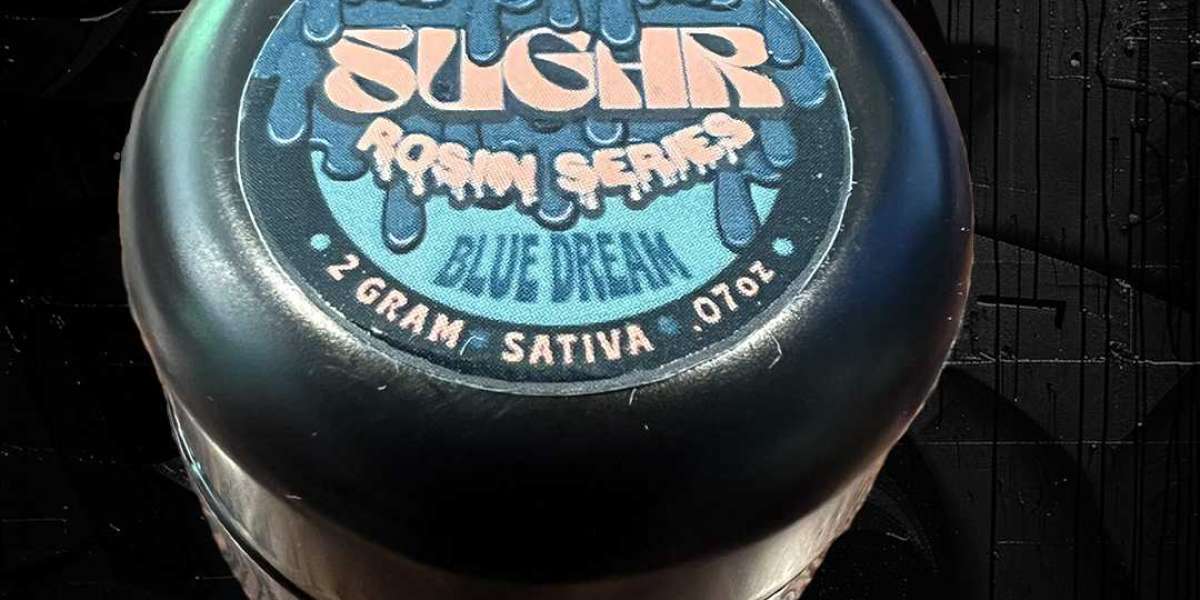Cannabis, particularly its psychoactive compound THC (tetrahydrocannabinol), has long been associated with creativity. From famous musicians and artists to writers and thinkers, many creative individuals have touted cannabis as a tool for unlocking new ideas, perspectives, and ways of thinking. But what is it about THC that seems to enhance creativity for some and focus for others?
In recent years, scientific studies have begun to explore the mechanisms behind these claims, revealing some fascinating insights into how THC interacts with the brain. In this article, we’ll explore the science behind THC’s effects on creativity and focus, the role of strain selection, and tips for incorporating cannabis into your creative process responsibly.
THC and the Brain: A Primer
To understand how THC influences creativity and focus, it's essential to first understand how it interacts with the brain. THC is the primary psychoactive compound in cannabis, and it works by binding to CB1 receptors in the brain, which are part of the endocannabinoid system. These receptors play a crucial role in regulating various functions, including mood, memory, and perception.
When THC binds to CB1 receptors, it alters neurotransmitter release in the brain, particularly dopamine. Dopamine is often referred to as the "feel-good" chemical and is heavily involved in reward, motivation, and cognitive functions like memory and attention. By influencing dopamine levels, THC can create feelings of euphoria and relaxation, but it also has the potential to alter thought patterns and cognitive processes.
The Default Mode Network (DMN) and Creativity
One of the key neurological systems linked to creativity is the default mode network (DMN), a network of brain regions that become active when we’re in a resting or reflective state. This network is involved in daydreaming, imagining the future, and thinking creatively. THC has been shown to affect the DMN by reducing activity in certain areas of the brain responsible for self-criticism and inhibition, allowing for more free-flowing, divergent thinking.
This disinhibition effect is why many cannabis users report feeling more imaginative or inspired when consuming THC. By quieting the inner critic that often suppresses new ideas, THC can open the door to more creative thought processes. However, this effect tends to be dose-dependent, meaning that too much THC can lead to overstimulation or distraction, which may hinder rather than help creativity
Divergent vs. Convergent Thinking
Creativity involves two types of thinking: divergent thinking and convergent thinking. Divergent thinking is the ability to come up with many different ideas or solutions to a problem, while convergent thinking is the ability to focus on a single solution or idea and refine it. THC is known to enhance divergent thinking by expanding the mind’s capacity to generate novel connections between concepts, which is why it’s often linked to brainstorming and artistic expression.
A 2012 study published in the journal Psychopharmacology found that low doses of THC can increase divergent thinking in certain individuals. However, higher doses had the opposite effect, impairing both divergent and convergent thinking. This suggests that while THC can enhance creativity, moderation is key to achieving the desired effects
THC’s Role in Focus
In addition to enhancing creativity, THC can also impact focus, though this effect varies widely depending on the strain, dose, and individual user. Some strains of cannabis, particularly sativa-dominant varieties, are known for their uplifting, energizing effects that can help users concentrate on tasks.
This is partly due to THC’s interaction with dopamine, as increased dopamine levels can lead to heightened motivation and attention. However, too much THC, especially in high doses or with strong strains, can lead to short-term memory impairment, making it difficult to focus on complex tasks. This is why finding the right balance and dosage is essential for those seeking to use cannabis to improve focus
The Role of Strain Selection in Creativity and Focus
Not all cannabis strains are created equal when it comes to enhancing creativity and focus. Strains are generally classified into three categories: sativa, indica, and hybrid, each offering different effects.
- Sativa strains are often recommended for creative activities because they tend to produce uplifting, energizing effects that stimulate the mind. Strains like Sour Diesel and Jack Herer are popular among artists and creators for their ability to inspire new ideas without causing the heavy, sedative effects associated with indicas.
- Indica strains, on the other hand, are known for their relaxing, body-heavy effects. While they may not be ideal for creative brainstorming, they can be useful for those looking to unwind and focus on more meditative or introspective activities, such as writing or drawing.
- Hybrid strains offer a mix of both sativa and indica effects, making them versatile options for creativity and focus. Strains like Blue Dream or Pineapple Express can provide a balanced high that helps with both relaxation and mental stimulation.
The terpene profile of a strain also plays a significant role in its effects. Terpenes are aromatic compounds found in cannabis that contribute to its flavor and scent, but they also influence how THC affects the body. For example, limonene is a terpene known for its mood-lifting and energizing properties, making it an excellent choice for creativity, while linalool is a calming terpene that can enhance focus and relaxation
Tips for Using THC to Enhance Creativity and Focus
If you’re interested in using THC to boost your creativity or focus, here are some tips to help you get started:
- Start with a Low Dose: If you’re new to cannabis or trying a new strain, start with a low dose to see how your body reacts. Too much THC can overwhelm your cognitive processes and diminish your creative flow.
- Choose the Right Environment: Your surroundings play a significant role in how THC affects you. For creative tasks, choose a comfortable, inspiring environment free from distractions. For focus, a clean, organized workspace can help you stay on track.
- Use Sativa-Dominant Strains for Creativity: If your goal is to enhance divergent thinking and inspiration, opt for sativa or sativa-dominant hybrid strains that promote an uplifting, cerebral high.
- Pair Cannabis with Other Creative Activities: THC can amplify creative activities like music, painting, or writing. Try pairing your cannabis use with a specific task to see how it influences your workflow.
- Stay Mindful of Tolerance: Regular cannabis use can lead to tolerance, meaning that over time, you may need to consume more to achieve the same effects. Be mindful of your tolerance and take breaks when necessary to maintain THC’s creative benefits.
Conclusion
THC has a unique ability to enhance both creativity and focus by influencing the brain’s reward and cognitive systems. Whether through quieting the inner critic, expanding thought processes, or boosting motivation, cannabis can be a valuable tool for unlocking new ideas and improving concentration.
However, like any tool, the key to using cannabis effectively for creativity and focus is balance. The right strain, dose, and environment can make all the difference, allowing you to harness the full potential of THC without overloading your brain. By experimenting with different strains and approaches, you can find the perfect cannabis experience to complement your creative journey or work routine. At MyTHCBuddy you can find a variety of products with high-quality THC such as disposable weed pen, and looper weed.













